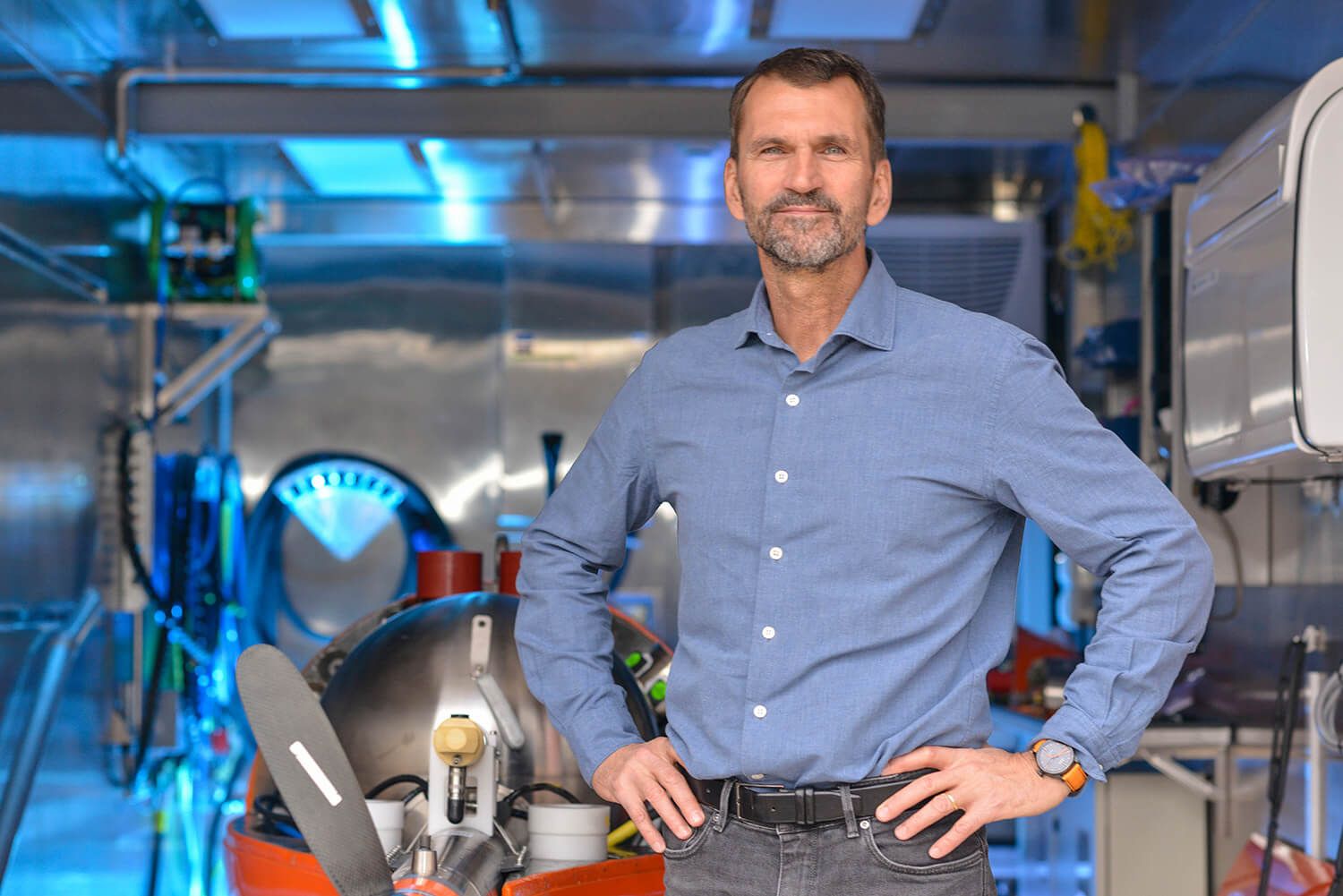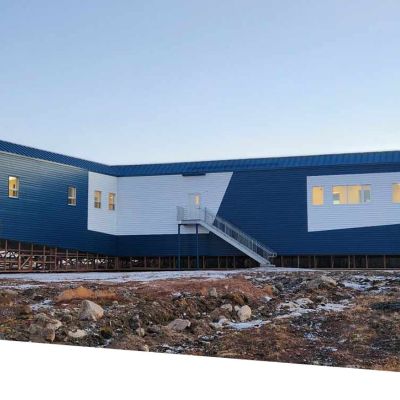A marine research station north of the 67th parallel
The first research station in the eastern Canadian High Arctic opened its doors in February 2025 in the community of Qikiqtarjuaq, Nunavut. Université Laval, in particular through its Sentinel North strategy, played a key role in the implementation of this collaborative project with the community of Qikiqtarjuaq and Qikiqtani Inuit Association (QIA). The world-class station is the first where deep-sea oceanographic processes can be studied on land. It will help speed up marine research in the North, thanks to advanced technology and the community’s active participation in the research.
A strategic location
The station is located in an area where the continental shelf is very narrow, which means that the ocean rapidly reaches a depth of 400 metres. This particular geographic location makes it possible to study conditions that are typical of the deep sea while staying near the coast. It is a prime observation site for monitoring changes in populations of fish, small marine organisms, microalgae and microbes in response to environmental changes. The long-term objective is to make the Qikiqtarjuaq station a leading hub for marine research in the Arctic, where all levels of the food chain and how they change over time can be studied.
A state-of-the-art infrastructure at the heart of the community
The station will be able to accommodate a few dozen researchers throughout the year, giving them access to its modern laboratories. The station will be equipped, among other things, with a fluorescence-based optical nanoscope, an innovative tool for observing microscopic algae which constitute the basis of the marine food chain.
The involvement of the Qikiqtarjuaq community and QIA was a key factor in the realization of the project, and this is reflected in the station’s operating model. A historic memorandum of understanding was signed with QIA in which the association is identified as a full partner in the design, implementation and management of the research infrastructure. The active participation of community members will facilitate the integration of their knowledge in the projects carried out, and will strengthen the local research capacity. In 2040, following a 15-year operating period, QIA will assume ownership of the station, a strong gesture of support for the self-determination of Inuit in the area of research.

"Thanks to this laboratory, scientists are no longer restricted to the summer season to study, from land, the oceanographic processes of marine ecosystems in the Baffin Island region. This is a major gain."
- Marcel Babin, scientific co-director of Sentinel North and instigator of the Qikiqtarjuaq oceanographic station project
